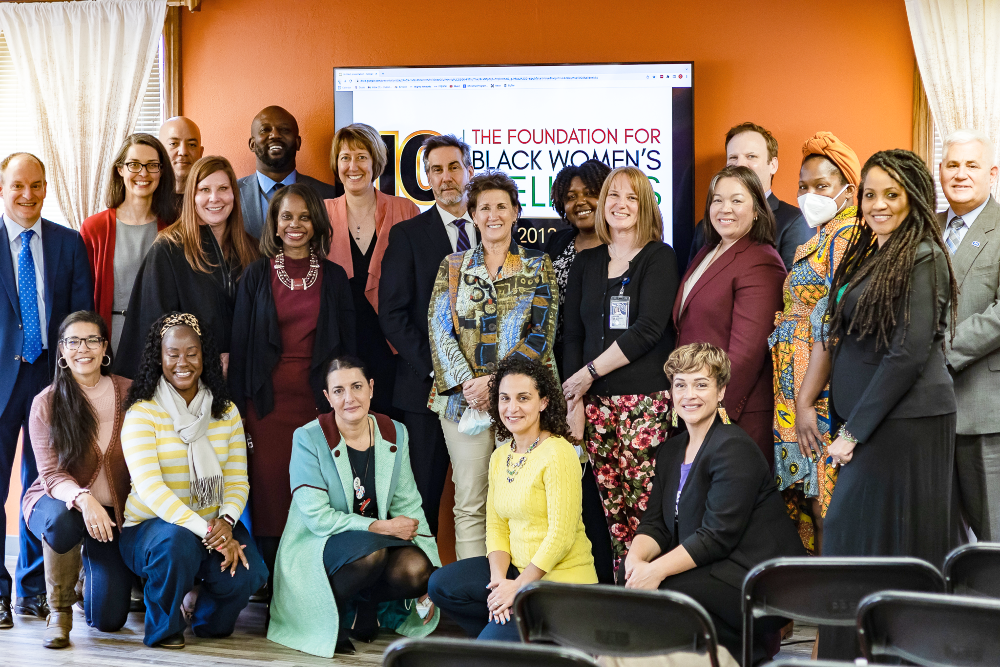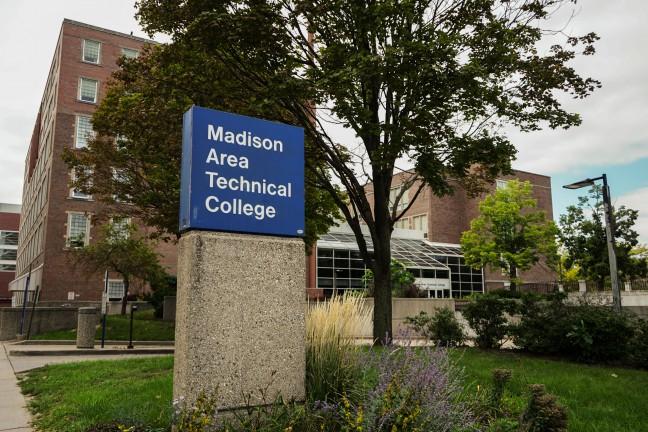The Dane County Health Council and the Foundation for Black Women’s Wellness launched ConnectRx in April, a program designed to support Black birthing persons and their infants. By recognizing systemic racism that has led to health disparities, ConnectRx aims to use specially designed resources and services to promote the wellbeing of Black women.
According to the March of Dimes Foundation, the average mortality for Black infants was 13.7 per 1,000 live births, compared to 6.1 on average and just 4.9 for white infants. Black infant mortality in Wisconsin is higher than most other states in the country, creating pertinent cause for concern. In light of these harsh realities, ConnectRx strives to help eligible pregnant people through their pregnancy and beyond to improve and sustain positive health outcomes.
Recognizing that health is connected to many broad systems of discrimination, oppression and neglect, ConnectRx not only seeks to provide support through pregnancy but to assist Black pregnant people after giving birth. This takes the form of career counseling for economic stability and helping new parents find reliable housing to keep themselves and their new babies safe, healthy and happy.
Supreme Court’s Wisconsin redistricting ruling continues political suppression of Black voters
The focused nature of this program calls for certain eligibility requirements so they can best assist the needs of individuals using the services. In order to qualify, patients must identify as Black, have a positive pregnancy test and meet criteria for at least one of five Social Determinants of Health, also known as SDOH, which can help identify high-risk pregnancies.
According to the United States Department of Health and Human Services, the domains of SDOH are economic stability, education, health care, neighborhood and environment and social and community context. ConnectRx more specifically outlines these determinants as housing, financial stability, food insecurity, stress and transportation.
Patients who meet the criteria through this process are then screened by a community health care worker who will make the final determination about joining the program. From there, admitted individuals are connected to the resources ConnectRx has to offer.
Understanding the importance of a program like ConnectRx requires knowledge about the historical relationship between Black people and health science in the U.S. Since 1619, when the first enslaved Africans were forcibly transported to the U.S., white supremacists have used bastardized “science” to justify their racist practices.
Behind the guise of objective authority, racist scientists of the 19th century used corrupt methods to suggest the superiority of white people over Black people. Despite scores of evidence showing race is socially — not biologically — constructed, polygenists believed humans descended from separate species, spreading anti-Black messages of hatred to the American public on the basis of pseudoscience.
Early statistics have also been taken out of context by racist scientists to further promote ideas of white supremacy. Since Black people experienced worse health outcomes than their white counterparts, white supremacists argued they were naturally predisposed to disease. What these data failed to reveal were the social conditions and racist policies that denied Black people access to sufficient health care.
EPA’s recent toxics release data lacks accessible risk assessments for Wisconsin residents
This scientific racism meant Black people in that time period were at a social disadvantage because of the racist ideas disseminated and perpetuated from positions of scientific authority. Scientific racism is not just a thing of the past — it persists today through its effects and enduring present influence.
Despite a slight departure from the overtly racist polygeny of the 19th century, racist biases continue to influence modern science and health research, which in turn affect the experiences of Black people as they move through American health care systems. The prevalence of racist ideas throughout American history can be connected to health disparities Black people experience today.
While Black women are, on average, younger than their white counterparts, they are more likely to experience various health issues. Conditions such as heart disease, cancer, stroke, stress, obesity and pregnancy complications are all more common in Black women than in white women.
These discrepancies can be best explained by structural factors that have direct and indirect connections to health. Because of compounded historical conditions of marginalization, Black women are impacted by systemic discrimination today.
As a result, Black women are more likely to experience lower socioeconomic status, live in neighborhoods with low property values and have dependents that rely on them. These factors all impact their ability to access health care and improve their health outcomes.
Starbucks, Colectivo unionization efforts challenge company neglect on local level
Studies show that systemic racism and sexism in health care causes Black women to receive lower-quality care especially related to maternal health. Also, medical gaslighting is common, meaning Black people’s medical concerns and complaints are not taken seriously by health care professionals. This can lead to missed diagnoses or delayed treatments.
The accumulation of systemic racism in different capacities accelerates the process known as weathering in Black women. This concept suggests that as humans age, their health worsens naturally. Black women, however, who can experience undue stress from unjust social conditions, experience weathering at a faster rate than other social groups that furthers widening health disparities.
Despite these mounting challenges placed on Black women, they have demonstrated incredible resilience in resisting oppressive forces. But, ultimately, they shouldn’t have to. The narrative that Black women are endlessly tough may have some positive impacts, but it places the responsibility on individual women to overcome oppressive systems that are much larger than themselves.
While much of the research on Black maternal health care focuses on cisgender women, it’s important to note that many Black trans, non-binary and other gender non-conforming individuals also give birth and are harmed by the same oppressive systems during pregnancy.
On the contrary, health care is not something that should be earned, but instead it is a human right that should not be qualified based on social standing or identity. As a country that has wronged the Black community for centuries, the U.S. has a responsibility to provide responsive care in order to promote health and prosperity. Community efforts like ConnectRx represent a promising start to this kind of initiative.
Undoubtedly, ConnectRx is a very important step forward that should be carried out with care. The initiative recognizes the breadth of health causes and impacts and specializes in the needs of Black women, which is encouraging, but ultimately, programs like these need much broader implementation to repair the long-term damage done to Black people in health care settings.
As a leader in this type of initiative, Dane County has a duty to show the nation how impactful ConnectRx can be. In all likelihood, successful administration of the program would be an encouraging indicator for health justice in our community and beyond.
Celia Hiorns ([email protected]) is a freshman studying political science and journalism.














